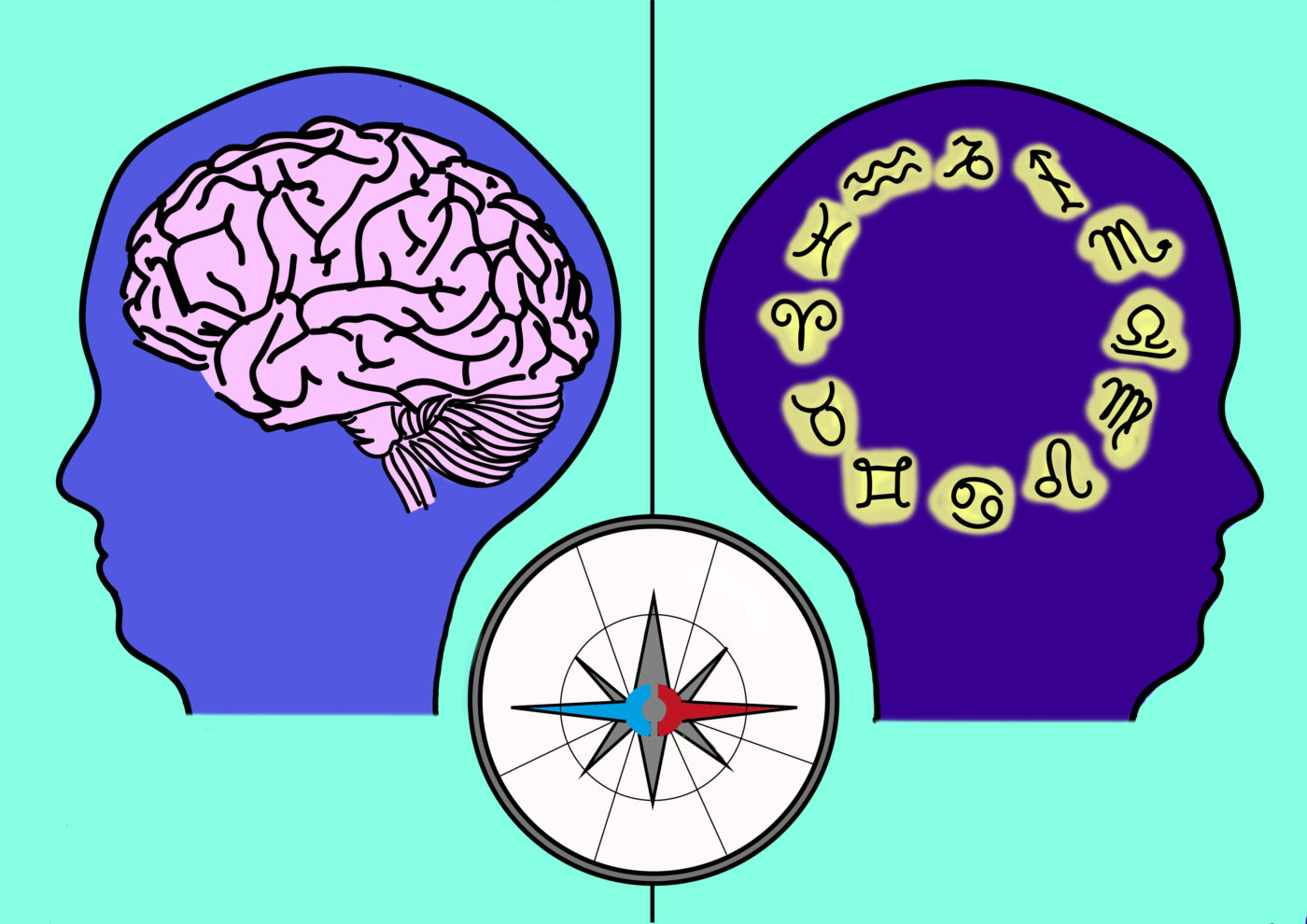Personality tests and horoscopes have been around for a long time, but they have now evolved into a singular language of identification and empathy.
As a new semester begins, your lecturer addresses the room and asks everyone to introduce themselves. You wonder how you will condense your entire being into a mere sentence. After all, making a stellar first impression can make or break you.
The same dilemma occurs when you set up an online profile. However, all you get are a scant few characters in your biography. The physical aspects of a good impression–confidence in speech and gait–are hidden from sight.
This is where personality types and astrological signs come in handy. In the absence of physical cues, online denizens may bank on these reliable shorthands to introduce themselves and be acquainted with others. In a Forbes article, Todd Essig says that these types and signs have surged in popularity because they are “self-reinforcing,” meaning “people use it because other people use it.”
Establishing identity
In the early 1940s, Isabel Briggs-Myers and her mother, Katherine Briggs created the Myers-Briggs Type Indicator (MBTI), which is composed of 16 combinations of the psychological types theorized by psychoanalyst Carl Jung. The four main categories include: focusing on the world, interpreting information, making decisions, and dealing with people.
Today, MBTI types have become recurring descriptions in social media. While online biographies still compose of basic facts such as age, occupation, and other hobbies, the Myers-Briggs type has become, in a way, a universal understanding of an individual’s personality.
Aside from the four-letter personality types, there are also astrological signs or zodiac signs that have been used primarily to show how compatible two people’s personalities are. Based on star alignment, the zodiac signs can be dated all the way back to the astrology of Babylon, a major city of historical Mesopotamia.
These two ways of identification have allowed people to choose how they should introduce themselves to the world. But types and signs can go as far as helping analyze one’s behavior and suggesting ways to improve oneself. For example, an introverted person in a work setting would have to focus on social skills. In the case of horoscopes, the signs allow an individual to picture the kind of “self” he or she needs to be in order to achieve goals.
On the downside, a person may limit his or her decision making based on what the zodiac or personality test professes. This may be due to what psychologists call the “Barnum effect,” a phenomenon where persons find specific traits that apply to them in a vague description that apply to a lot of people.
For example, an article tells an impressionable Taurus that he or she is supposed to hate change. That person may relate the statement to that one time they ordered a different drink from a frequently visited cafe and didn’t like it, thus making the assumption that their horoscope was true. This may lead into caging people into stereotypes.
Language of empathy
Beyond self-identity, however, the language of personality and the zodiac have also been used to relate and empathize with others. An online biography, after all, is not for one’s own consumption–it is intended for onlookers or perhaps potential friends.
In an article for CNN Philippines Life, Apa Agbayani (AB COM 2014) says that zodiac signs have helped him empathize with other people. He argues that these signs are like languages to be learned: “The signs gave my poor [emotional quotient] an entry point to understanding other people,” which allowed him to navigate through difficult situations with poise.
Agbayani’s intimate knowledge of the signs, which he acquired through his own research, means that he has a ready-made framework to work with “instead of meandering blindly through a conversation.”
The zodiac, however, is not the only dialect of Agbayani’s language. Personality types, particularly Myers-Briggs indicators, form an equal part. In the past, Agbayani shares that he had a tendency to socialize not in terms of empathy, but of clear-cut logic. This was because people who are characterized by Introversion, Intuition, Thinking, Judgment (INTJ) like him value the sort of practicality not evident in fleeting small talk. “That’s something I’ve learned to watch out for, and I’ve been doing better at respecting people’s emotions.”
Even so, Agbayani acknowledges that the language has its limits. “There’s no objective proof supporting [zodiac signs].” Even the Myers-Briggs tests, whose questionnaire structure may appear vaguely scientific to newcomers, aren’t considered entirely credible.
Emerging in-group
Despite this criticism, an ingroup of fluent speakers has emerged around the language of zodiac signs and four-letter types. According to writer Rachel Hosie of The Independent, the newly resurgent field of astrology has found a new audience among millennials, who seek “comfort in the stars.”
Hosie continues that far from just “older women in boho dresses,” astrology’s following now includes a “strong community of young, cool, perfectly normal people who obsess over their zodiac signs.”
Indeed, many Facebook feeds are dominated by articles about the zodiac. Apart from personal horoscopes, some of these articles have purported to know something as intimate as the reader’s ideal partner or travel destination– all ostensibly gleaned from his or her zodiac sign. Similar articles have also popped up on the 16 Myers-Briggs types and their supposed tendencies. An Observer article claimed to know the kind of traveler certain four-letter types are while a Buzzfeed quiz even went as far as finding the “perfect” sex toy for each type.
As more and more people share these articles, the ingroup of people fluent in MBTI types and zodiac signs also grows, conversing in a language that the uninitiated will find confounding.
Beyond online introductions
This in-group, however, should not be construed as limited to online space. MBTI-inspired lanyards have graced the necks of some Ateneans, courtesy of a fundraiser by Ateneo Psyche, the home organization of Psychology majors in the Ateneo.
“One of the goals of the Ateneo Psyche is to get the LS community more engaged and interested in psychology as a science,” says Angel Duque, a psychology senior and the project manager of the Psyche fundraiser. While Duque acknowledges the Myers-Briggs test is “not the most reliable or accurate tool in psychology,” she still believed that the lanyards “could get the ball rolling and get more people engaged in the science of personality tests.”
With the common ground this language establishes, communication flourishes in turn.
For speakers of the same sign and type, there is familiarity and comfort in identifying with someone of the same perceived skin. Yet, even in the absence of similarities, the richness of the language still sparks interest and conversation.
Although the speaker is emboldened in conversing with others, they may also be pressured to live up to the sign and type in a self-fulfilling prophecy. The language of astrology and personality, therefore, is an ambivalent paradox: It yields two conflicting outcomes, depending on how it is used.
While it can liberate and allow self-expression, it can also risk caging people into stereotypes when left unabated. Although some use them as a guide, others may also use them as a textbook definition on what they can and cannot be.
Nevertheless, speakers learned in this language may acquire a foundation for strong, empathetic relationships. As one masters the signs and types, he or she is offered a deep, introspective look at his own humanity, strengths, and flaws all the same.
What do you think about this story? Send your comments and suggestions here: tgdn.co/2ZqqodZ







